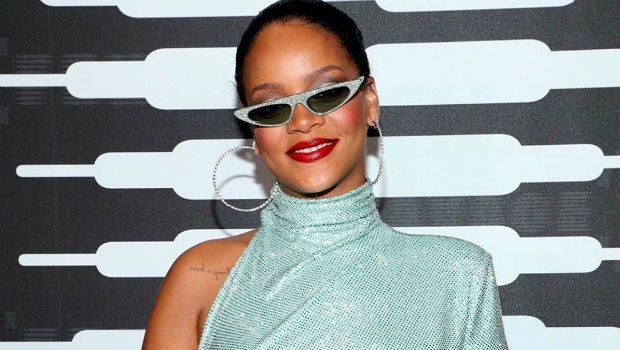
The pause of Rihanna's Fenty’s fashion activities with Moët Hennessy Louis Vuitton is a lesson for all luxury groups - staying power trumps social media buzz, writes Andrea Felsted
In the end, Rihanna’s 91 million Instagram followers were no match for Louis Vuitton’s 167 years of history.
Launched with a flourish less than two years ago, the partnership between singer Robyn Rihanna Fenty and LVMH Moet Hennessy Louis Vuitton was poised to shake up the fashion industry. Its promise was to put a celebrity influencer, rather than a designer, at the heart of its offering and appeal directly to social media savvy buyers. But last week the pop star and the world’s biggest luxury group said they were putting the clothing venture on hold.
The two will continue to work together on the Fenty cosmetics and skincare business, and L Catterton, the private equity fund backed by LVMH founder Bernard Arnault, has also just invested in Savage X Fenty, Rihanna’s lingerie line. Still, the pause of Fenty’s fashion activities is a lesson for all luxury groups: Staying power trumps social media buzz.
The reasons for suspending Fenty’s ready-to-wear business are clear. The pandemic pummeled demand for apparel and particularly for the dressy offerings from Fenty. Denim corset skirts costing $360 just haven’t sold as well as pajamas and night cream. There were also practical problems with Fenty’s strategy of creating multiple collections amid travel restrictions, with LVMH based in Paris and Rihanna in the U.S.
But perhaps the biggest hurdle for Fenty was the pandemic-inspired rush to the biggest brands, such as Hermes International and LVMH’s Louis Vuitton and Christian Dior, instead of toward newer choices. People bought fewer luxury goods overall last year, but when they did spend, they splurged on well-known labels steeped in history.
In both the U.S. and China, affluent shoppers who had amassed savings during lockdown chose to splash out on a Birkin bag or a Rolex watch rather than on a more experimental purchase. Handbags especially were popular, but they weren’t yet a big focus for Fenty.
The shift in consumer spending isn’t only affecting fledgling fashion houses. Other luxury groups that were in decline before the pandemic, such as Prada, Burberry Group and Salvatore Ferragamo, are also finding life more difficult. They haven’t been able to wrestle customers away from brands like Louis Vuitton that can afford more marketing. But these companies can’t just pause their operations like Fenty.
Both Prada and Burberry are working hard on their turnarounds. The Italian house appointed Raf Simons as co-creative director last year to work with head designer Miuccia Prada. Alongside this creative reboot, it is improving its online operations. The British group meanwhile is creating more handbags and reducing the amount of products it puts on sale. Both are seeing early promising signs. Prada’s retail sales in December recovered to 2019 levels, while Burberry’s full-price sales improved.
Things aren’t going as well at Ferragamo. The family holding company is seeking a board shake-up, including increasing the number of independent directors. This could pave the way for a sale to one of the big groups.
Conglomerates LVMH and Gucci-owner Kering SA have been leading the luxury pack, while Cartier-owner Cie Financiere Richemont SA has also enjoyed demand for its jewelry, but even these groups are not on equal footing.
On Wednesday, Gucci’s sales fell by a worse than expected 10% in the final quarter of 2020. Kering hopes to turbocharge the brand with a flurry of marketing around its 100th anniversary this year. It may need to think more radically about its star performer, perhaps even ditching Gucci’s distinctive "granny chic" aesthetic for something fresher.
All brands, however, could see some improvement this year as more people get vaccinated and venture out again.
Indeed, one alternative for LVMH would have been to continue with Fenty’s fashion business in anticipation of a recovery. After economies reopen, young people will be eager to go back out — and they’ll need the outfits to do so. With a market capitalization of 270 billion euros ($325 billion), it could easily afford to produce a few more collections and ramp up digital marketing.
The company did take pains to point out that the label has only been paused, not shelved. It could still bring it back in better times. Instead of making it a fully fledged fashion line, though, it should focus on creating one-off collections, along the lines of other celebrity collaborations. Rihanna-approved party dresses will come in handy if predictions of a roaring 2020s for fashion prove correct.
Under the current circumstances, Fenty won’t be upending the fashion industry. But it might work better in luxury’s post-pandemic future.




 Publications
Publications
 Partners
Partners












